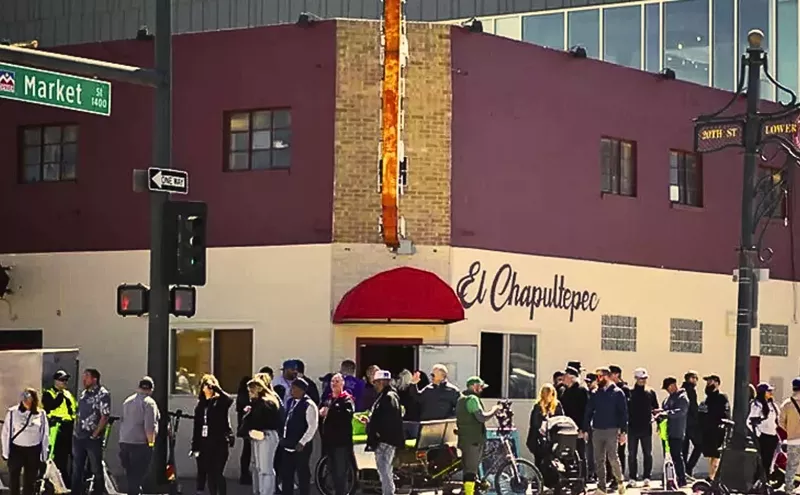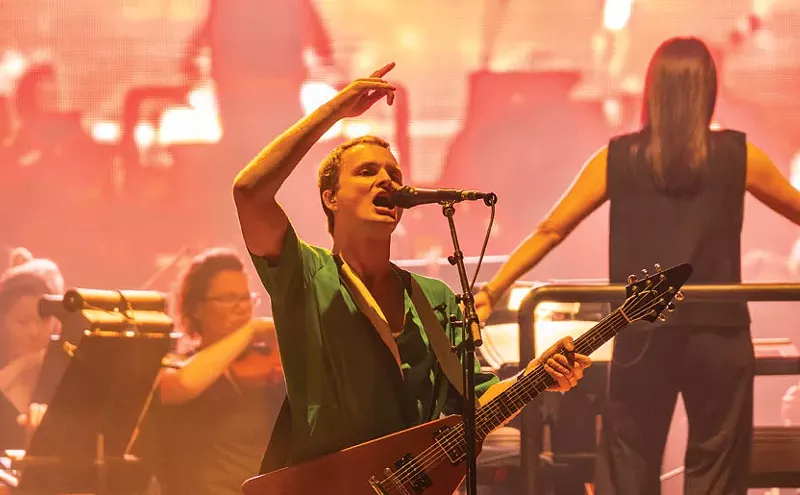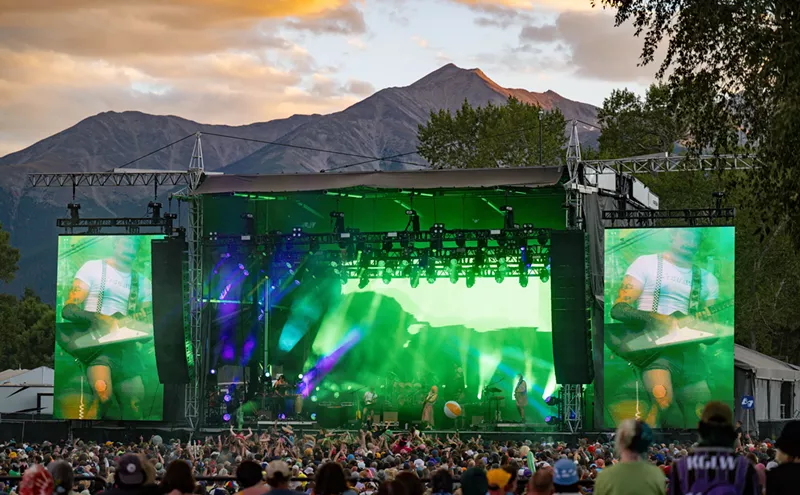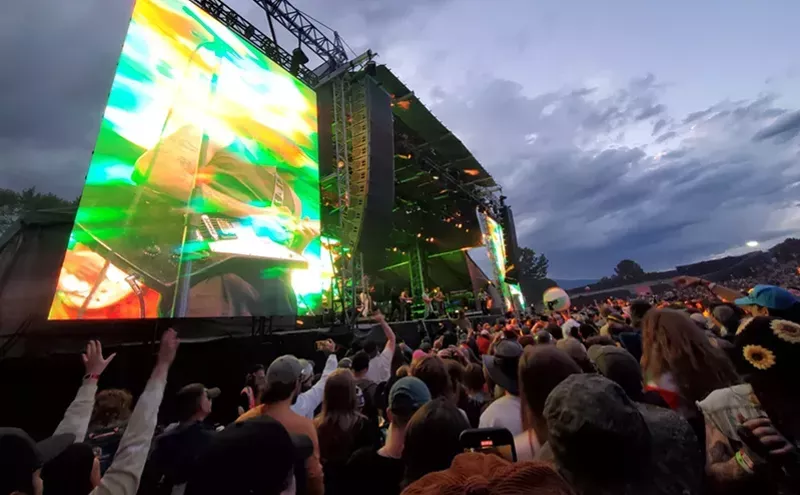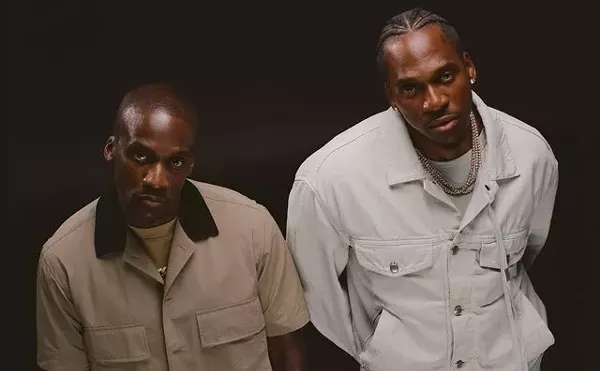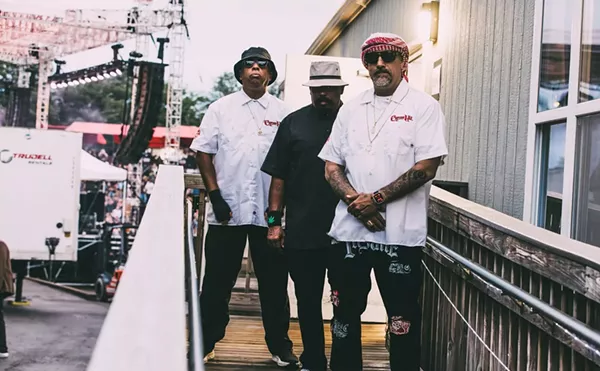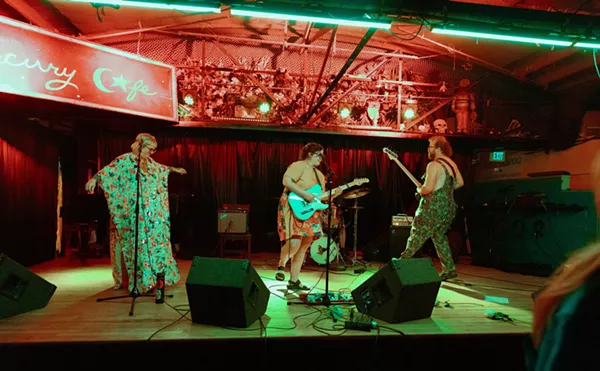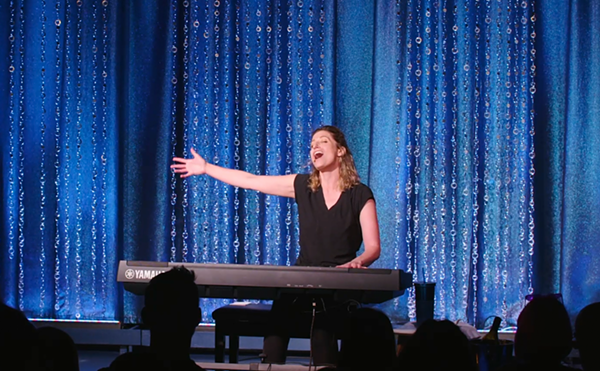Fortunately, Anaya's attempts to achieve a creative breakthrough are interesting in and of themselves, even when they're widely misunderstood. Take An Angle's most recent full-length, 2005's We Can Breathe Under Alcohol, recorded shortly after Anaya hit his twenties. Many listeners assumed that soused songs such as "Born in a Bottle" were autobiographical, which explains why certain reviews of the disc read more like interventions than critiques. Granted, Anaya didn't try to disguise the thematic importance of booze to the recording ("It's even in the fucking title," he notes), and he concedes that he frequently imbibed while writing the tunes -- an approach he chalks up to "research." Still, he insists that the tunes aren't rhyming diary entries; rather, they're "stories about an alcoholic boy going through the party scene and the dance scene where everybody's always getting fucked up, and how that affects his politics and women and friends." As such, he adds, "I wasn't just bragging about being a drunk indie-rock guy. But I don't think everyone got the point."
Perhaps doubters will believe him after the arrival of the next Angle recording, The Truth Is That You Are Alive, slated for a May release on Drive-Thru Records. The disc's genesis can be traced to a four-day tour layover Anaya spent in a tiny town in Missouri. "The population was like, 35, and there was nothing to do," he recalls. "I was like, 'Fuck it. I guess I'll walk around and write songs.' So I spent all my time walking dirt roads and singing lyrics, then running back to the house to write them down." The resulting compositions eschew liquor references, focusing instead on big themes of life, death and faith. While Anaya is proud of the ditties, he admits that they were tougher to pull together than his previous batch. "Since I was writing about religion, I actually had to read," he says, with mock disdain. "Maybe I should write another alcoholic album, because that was way more fun."
At least the latest numbers are entertaining to perform. He says Truth is "a lot more rock and roll, with a lot shorter songs" than Breathe, which had more than its share of what he describes as "seven-minute, Leonard Cohen-type rambling ballads." He hopes the material will take him one step closer to discovering a new rock style for a new millennium.
"I'm trying to progress, trying to find something that's more our time than the past," he says. "But it's fucking hard."



